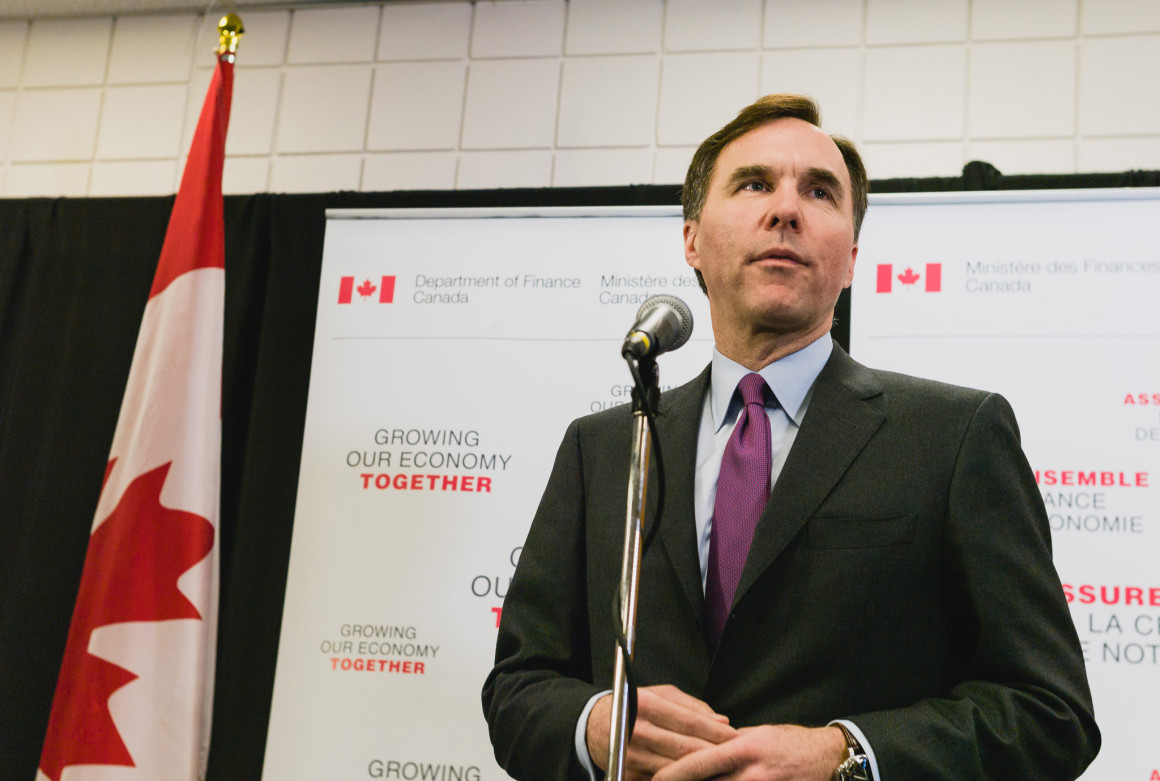
Liberals boost post-secondary spending in deficit budget
By Fabian Mayer, March 22 2016 —
Justin Trudeau’s Liberal government unveiled a $29.4-billion deficit, massive infrastructure spending and Indigenous health and education investments in the first budget since his government’s October election. The budget also includes numerous commitments for youth and post-secondary students.
The government plans to increase funding for Canada Student Grants by 50 per cent. Students from low-income families will have access to $3,000 in annual grants — up from $2,000 — starting next year. For students from middle-income families, the amount will be raised from $800 to $1,200 per year. The expanded program will cost the government $1.53 billion over the next five years.
University of Calgary Students’ Union president Levi Nilson credited lobbying by organizations like the Canadian Alliance of Student Associations for the policy’s inclusion in this budget.
“It’s something that CASA has been lobbying on forever and it was something that was a big part of our lobbying efforts when we were in Ottawa weeks ago,” Nilson said.
The budget eliminates the education and textbook tax credits implemented by Stephen Harper’s Conservative government, claiming they “often provide little direct support to students at the time they need it most.”
The Liberals also raised the income threshold when students must begin paying back student loans from $20,210 to $25,000. This measure will cost $131.4 million over five years.
The spending on post-secondary education is part of a myriad of spending commitments the government hopes will boost Canada’s stumbling economy. The $29.4 billion deficit is nearly triple the size the Liberals proposed during the election campaign.
Nilson thinks that considerable post-secondary spending will be worthwhile in the long run.
“Investing in young people is not only a great investment for the future, but will also help sustain every other social program in the future by creating a more highly-educated workforce,” Nilson said.
The budget also proposed growing the government’s Youth Employment Strategy. The $165.4 million expansion will be on top of $339 million in spending on the Canada Summer Jobs program announced in February 2016.
U of C president Elizabeth Cannon welcomed the budget.
“This is a great budget for post-secondary institutions,” Cannon said. ”We look forward to seeing the details and getting to work to see how the U of C can specifically benefit.”
As part of the billions in infrastructure spending, the government will create a three-year, $2-billion infrastructure fund specifically for Canada’s post-secondary institutions. The funds will cover 50 per cent of the costs of eligible infrastructure projects on Canadian campuses. Cannon said a redevelopment of MacKimmie Tower and Professional Faculties are the U of C’s top priorities.
“This is a significant amount of money,” Cannon said. “At the U of C we’ve been very clear on our capital projects and our priorities so we look forward to discussing both with the provincial and federal governments how we can access those funds and move some of our projects forward.”
Canada’s federal research councils, which allocate research funding to professors and graduate students, saw a combined boost of $95 million. Both Nilson and Cannon were happy with the increase.
“It’s the largest investment we’ve seen in a very long time so that will be very welcome,” Cannon said.
The budget will be debated in parliament over the coming weeks.
